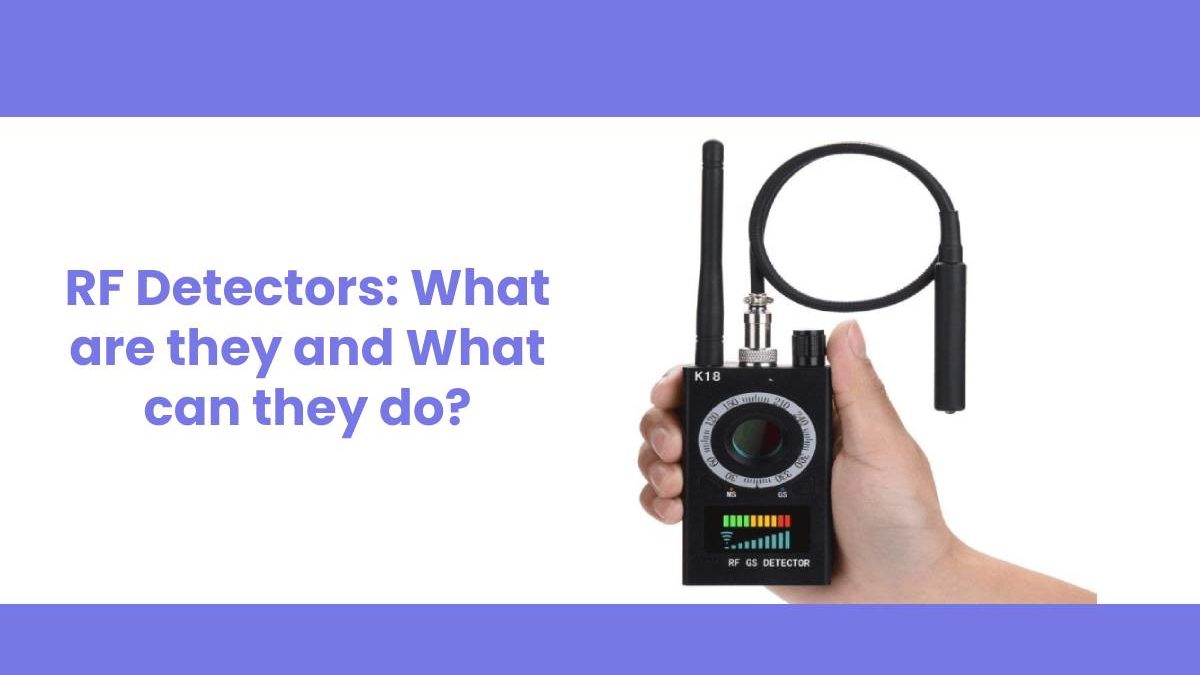With advances in wireless technology, new systems and solutions will often come hand-in-hand with increased use of radio frequency (RF) energy. Medicine, communications,and surveillance are some of the sectors in which this technology is an important component.
But, for enthusiasts and professionals alike, this increased use of RF brings with it the need for robust monitoring tools. RF detectors are a core component in the detection and measurement of transmitter output power. They also have a crucial role in counter-surveillance activities too.
What is an RF detector?
To understand the importance of an RF detector, it is first a good idea to know exactly what an RF detector is. It is a device or component that is designed to detect RF waves where used in a wired or – more commonly – wireless application.
An RF detector can monitor and sample the output from a RF circuit –before itself outputting a proportional direct current (DC) voltage at that point. It can determine if a RF signal is present in the first instance. But it can also be used to check if there is any outside interference and to test that wireless or signal-producing equipment is working properly.
Not every RF detector is the same, however. In fact, there are two different types that you will find available from specialists including RS Components.
The first is the logarithmic type, which creates a proportional DC voltage by converting the RF power input based on its log. The second, meanwhile, is a root mean square (RMS) detector – where the DC output is proportional to the RMS value of the radio frequency signal instead.
Which is the right RF detector to use?
First and foremost, it is important to know which type of RF signal must be measured and/or monitored. The log type often proves itself to be effective for general power measurement or control uses. Its fast response times make it particularly useful if pulsed signals are used.
In wireless and mobile telecommunication networks, an RMS type is better for monitoring RF signals. This is mainly because RMS is more suited to signals with high crest factors or those with a crest factor where changes are much more frequent or pronounced.
Why are they important?
RF detectors can prove their worth in more ways than one. For anyone involved in the set-up and maintenance of networks, it is essential to measure the power of a signal. This is not just to ensure the range, stability and reliability of the network in itself – but also to eradicate any interference that could disrupt communications.
There are also legal requirements when it comes to the amount of power that is transmitted.But it is equally important that RF detectors can help detect and counter any non-authorised signals. The use of drones around protected airspace is one such example of this.
What are RF detectors used?
RF detectors are commonly used to measure the power output of transmitters. This relates back to that need to control output in accordance with relevant regulatory guidelines. Using measurements obtained by the detector, that power can be adjusted as required.
The advantage of using an RF detector in receivers, meanwhile, is that constant signals can easily be guaranteed. In turn, it means the receiver will be able to convert analogue signals into digital signals – or to extract the information within the signal (demodulation).
Other applications include healthcare, security systems, traffic management and military.
Kamran Sharief
Related posts
Sidebar
Recent Posts
The Rise of Legal Tech Startups: What Law Firms Need to Know
Introduction The legal profession, often rooted in tradition and resistant to change, faces a technological revolution. Legal tech startups are…
Shiba Inu vs. Dogecoin: The Battle of the Meme Coins
In the realm of cryptocurrency, there has been an ongoing battle between two popular meme coins, Shiba Inu and Dogecoin….




Review RF Detectors: What are they and What can they do?.